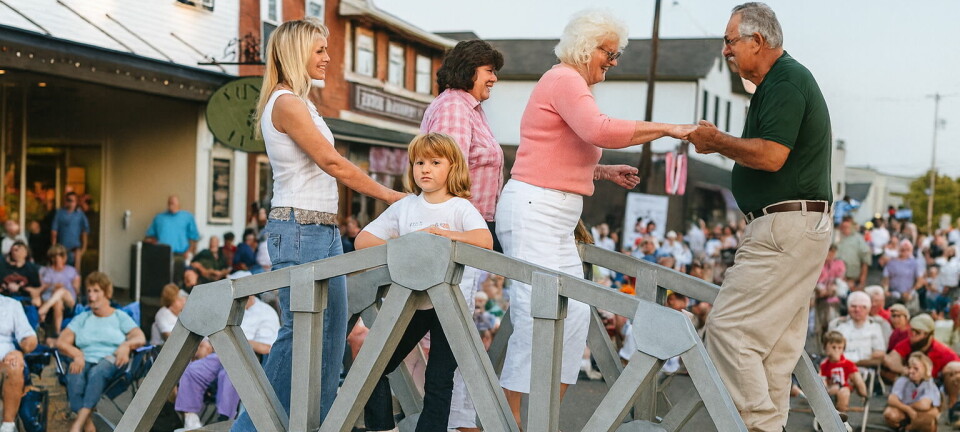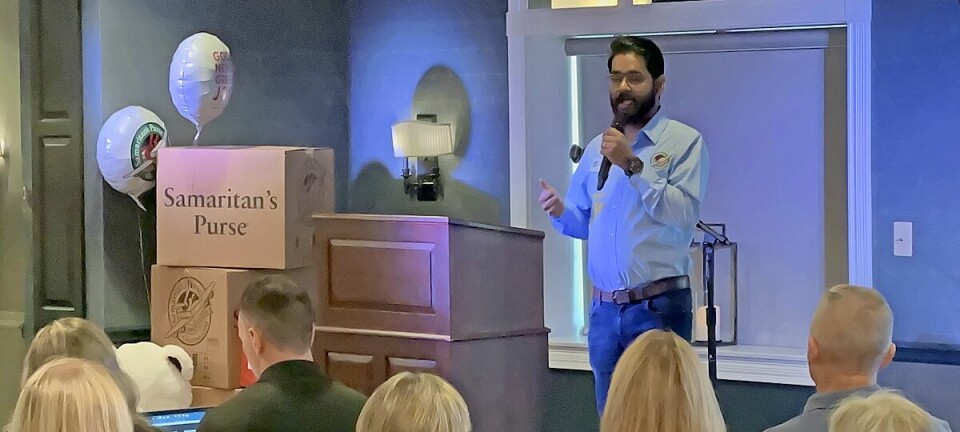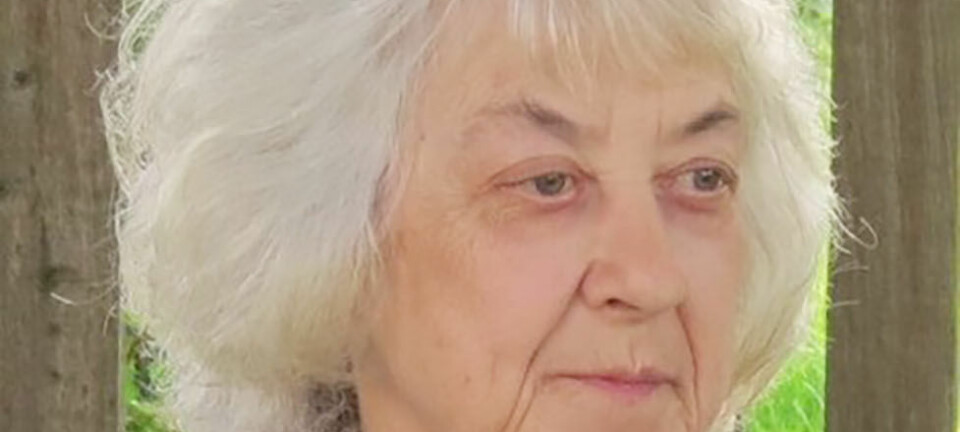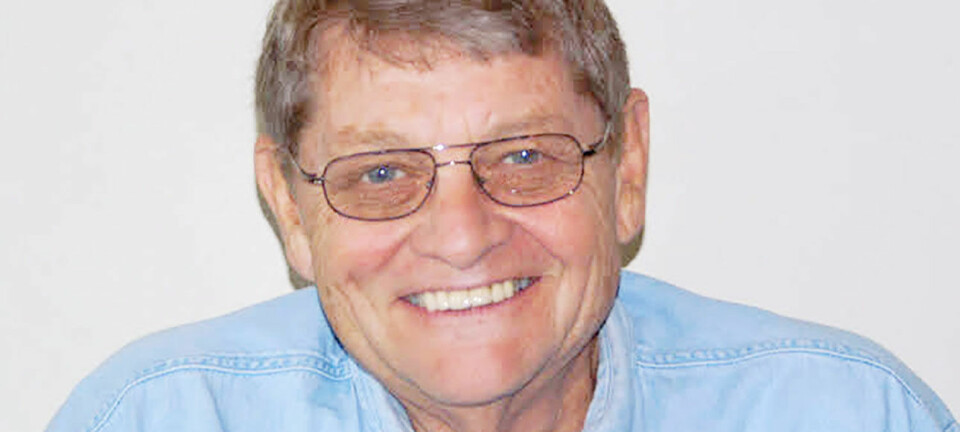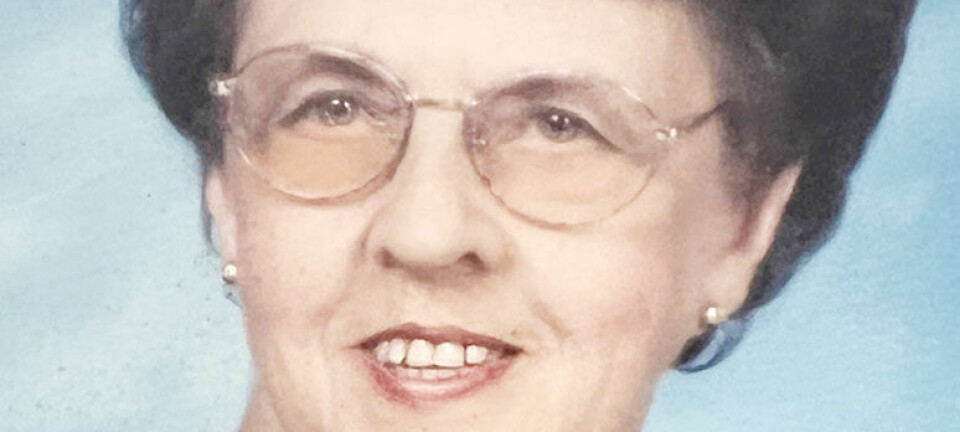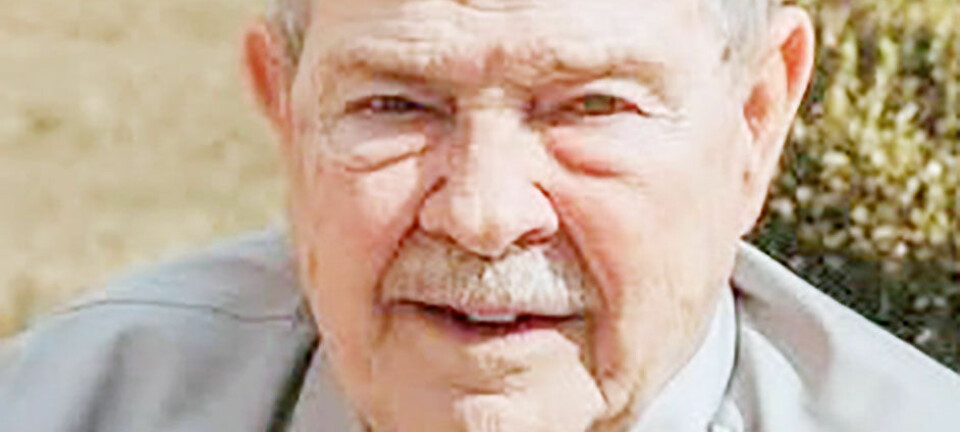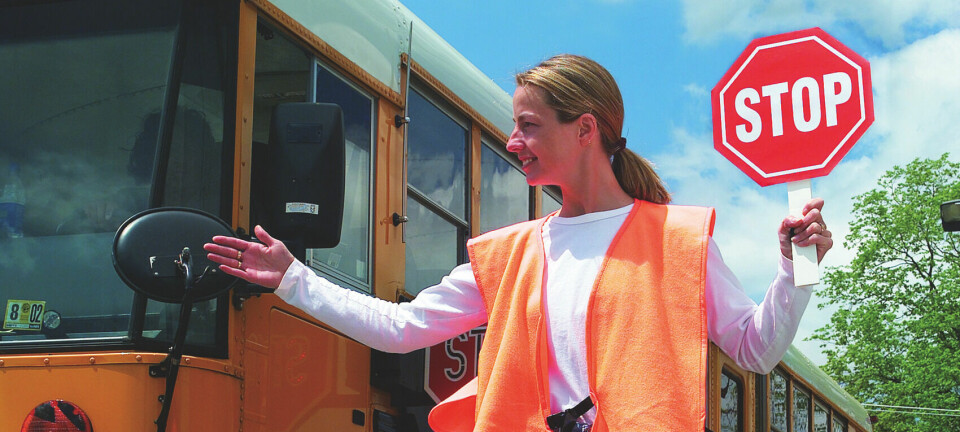Scouts learn about weather at Camp Tuscazoar

One of the last activities of the year at Camp Tuscazoar on Oct. 19 saw Scouts gathering to work on merit badges.
“We’re doing a fall merit badge program, and we’re focusing on the weather merit badge this morning, and then this afternoon, the Scouts are going to participate in Jamboree in the Air,” said Nancy Schoenbaum, a member of the Camp Tuscazoar Board of Directors. “We have ham radio units all over the camp, and they can talk to all kinds of places.”
The Scouts were divided into five patrols, and they attended programs at six different stations from 9 a.m. to 12:30 p.m. before they gathered for lunch at Kimble Hall.
A special guest at the event was Trent Magill, a meteorologist with WEWS Channel 5 in Cleveland. All patrols gathered at 10 a.m. at Kimble Hall for the program.
His first question to the group was whether they had thawed out from the night before because many of the Scouts slept in tents at Camp Tuscazoar.
Working in television might seem glamorous, but there also is a harsh reality.
“I work the morning shift, so my alarm goes off at two in the morning,” Magill said.
He heads to work and is on air at 4:30 a.m. “People are up that early, waiting for the weather. I’m on air 4:30-9 a.m., then after 9, bunch of meetings, bunch of boring stuff and then prepping for the next day.”
Magill heads out after his shift around 10:30-11 a.m.
His interest in weather started early. He grew up in Missouri, an area known for its many tornadoes. “I always wanted to chase storms, like on TV,” Magill said. “I wanted to see them. I just wanted to chase them.”
A visit to a news station while he was in high school only reinforced his plan to work on television. Magill later attended the University of Missouri.
“I wanted to go somewhere in the middle of tornado alley, learn about tornadoes or figure out what was happening,” Magill said.
He then joined the Mizzou Storm Chase team and was on the team for all four years he attended college.
The groups’ activities depended on who had a car and enough gas to head to the area where storms and tornadoes were predicted. They took their laptop computers and a paper map. The trips were a learning experience.
“More times than not, we’d go, and we wouldn’t see it,” Magill said. “We’d go back to school and forecast again, find out what we did wrong, what we missed out on, why we missed these storms. We got better and better and better at it.”
Tornadoes are dangerous, and Magill believes the more accurate meteorologists can be with their forecasts, the more people can be safe when storms are predicted. The storm-chasing group viewed the damage caused by storms and talked to the people affected.
“I kept hearing, ‘I wish I would have known. I just wish we would have known it was coming,’” Magill said.
If people know what is coming, they can seek safety, and that is why Magill said his job is so important. It’s essential to listen to the emergency alert radios and keep up with forecasts on television, radio and on your cellphone.
Magill covered numerous weather-related topics including the right type of clothing to wear to stay warm and dry when camping. He also shared some facts about lightning.
“The surface of the sun is about 10,000 F. Lightning is 50,000 degrees, so it’s five times hotter than the surface of the sun,” Magill said.
The heat from lightning causes particles to move.
“All those little particles, all that’s touching 50,000 degrees, spreads out, superheated, and it expands out. Lightning is a fraction of a second,” Magill said.
Once the lightning is gone, all the particles clap back, and that is what causes thunder, which is an echo.
Magill said, “When thunder roars, go indoors.”
It does not have to be raining for lightning to form. Cars also are safer than being outdoors in a thunderstorm.
Television news forecasts are not the only job for meteorologists. Walmart even has its own weather forecasters to keep its trucks safe. They plan routes around blizzards and snowstorms and other weather that could delay shipments. Many other companies including airports have their own meteorologists too.
“There’s a lot of jobs out there,” Magill said.
Scout Curtis Spitler of Kent was impressed with Magill’s program.
“I didn’t expect the weather guy to be here at all, so that was very cool, very interesting,” Spitler said.
Schoenbaum invites everyone out to enjoy all the camp has to offer. Camp Tuscazoar is open free to the public from dawn to dusk for hiking, biking and horseback riding. Campsites and cabins also are available to rent. For safety reasons visitors are asked to sign in and out when they visit. More information is available on the website at www.tuscazoar.org.


